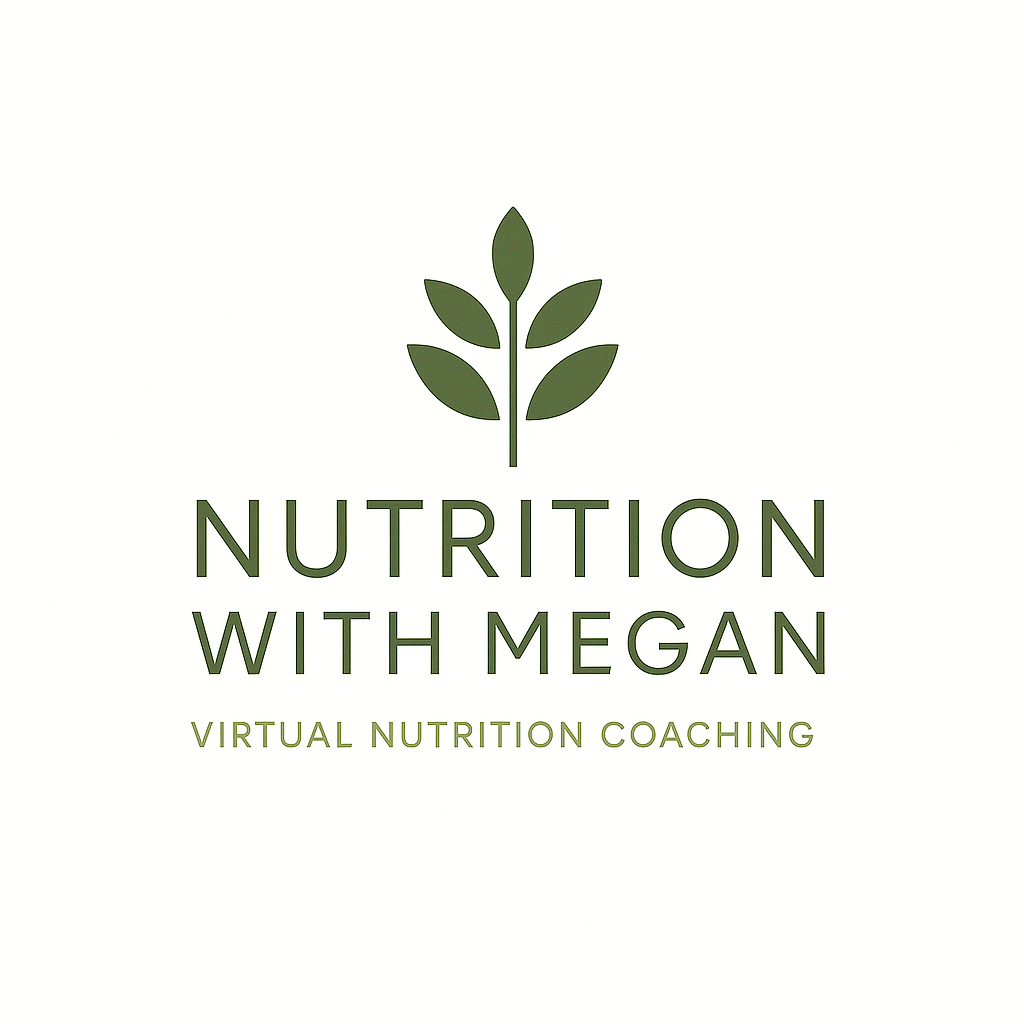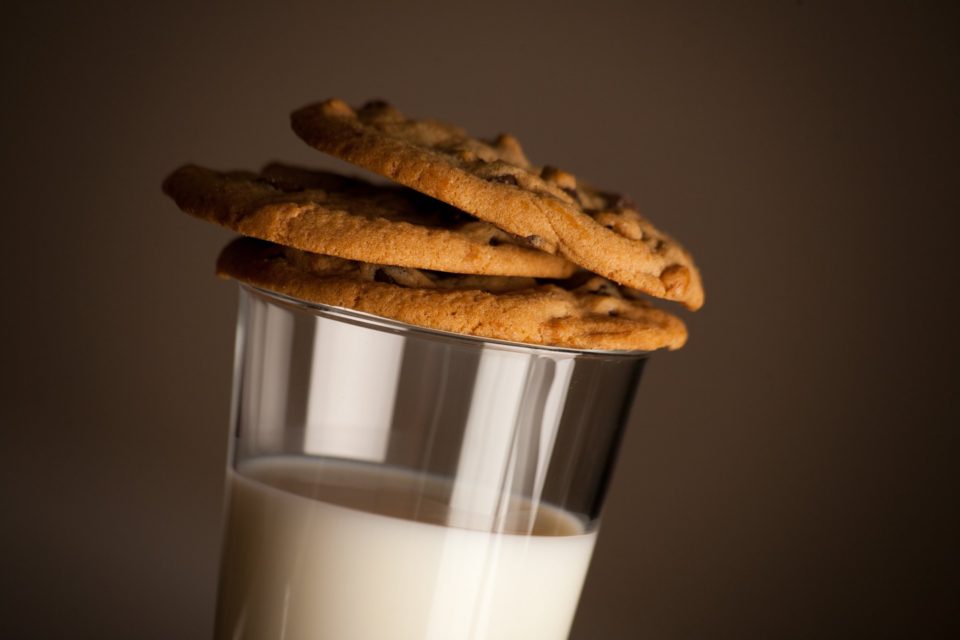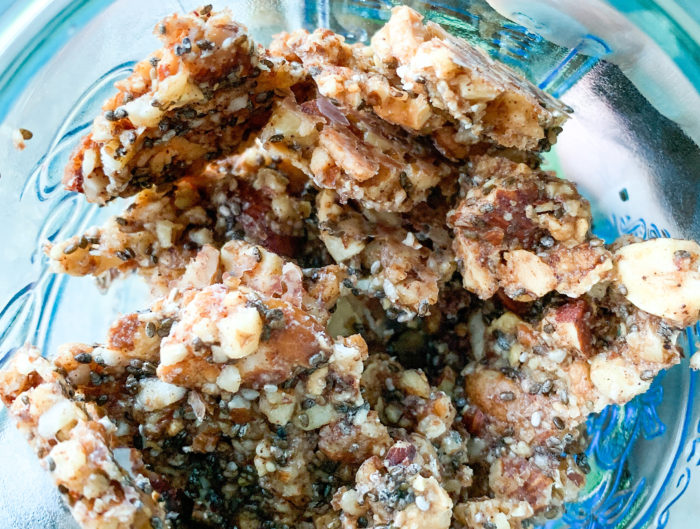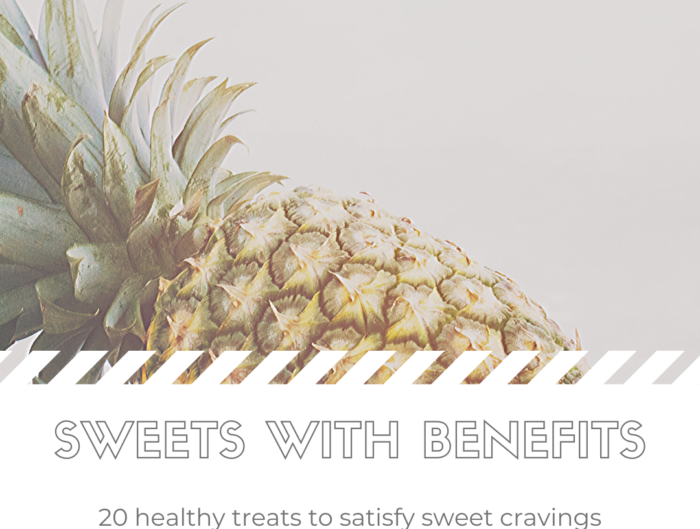Do you ever feel like you constantly crave sugar?
Like no matter how much or little you have of it you’re always thinking about your next sweet treat?
The answer to this problem is not to blame yourself for lack of willpower or see yourself as broken or purchase the latest detox juice. You don’t need any of those things if you can get to the root cause of why you’re wanting these foods to begin with.
Before I get into the 5 questions to ask yourself to get to the root cause of your sugar cravings, I want to remind you that sugar, in the form of glucose, is your body’s main energy source. Therefore, if you’re having sweet cravings it likely has something to do with energy management.
These questions will help you figure out if you’re fueling your body with the right energy sources throughout the day along with a variety of other factors related to energy balance. Let’s be honest, when you’re craving sugar it’s not usually when you’re feeling your best, energetic self. Am I right??
Be sure to keep reading to the end and I’ll give you 8 action steps so you can get started today!
.
1. Am I getting enough high fiber carbohydrates throughout the day?
Like I mentioned earlier, glucose in the body’s preferred energy source and we get that glucose from carbohydrates in our diet. As you probably already know, not all carbs are created equal. Simple, or refined, carbs such as sugar and white flours take very little time to digest, get absorbed into the bloodstream quickly, and spike your insulin and blood sugar levels.
Since this glucose is quick to enter your bloodstream it’s also going to be quick to exit and be used for energy and therefore drop your blood sugar. It’s during this quick drop that your body starts to ask for another quick hit of energy: SUGAR.
The good news is, if we choose more high fiber carbs at meals and snacks such as fruits, vegetables, and whole grains, they will still break down into glucose but at a slower rate leaving you fuller for longer. Most adults need about 25 g of fiber per day.
.
2. Am I including protein and fats at meals?
It’s very easy to enjoy meals that are heavy on carbohydrates (even healthy, high fiber carbs!) and low in protein and healthy fats. Examples would be beans and rice or spaghetti with meat sauce. Protein and fat is extremely important for increasing levels of the hormone leptin after a meal. Leptin is in charge of telling the body you’re full and it’s time to stop eating.
This is why diets such as Keto are so popular! Eating a high fat, moderate protein, and ultra low carb diet increases leptin so you don’t feel hungry while on the diet. However, you don’t have to go on a Keto diet to reap these benefits (Thank God, I LOVE carbs!). Simply include protein and fats alongside your high fiber carbs for the ultimate filling meal.
Since protein and fat doesn’t raise blood sugars like carbs, you’ll also get the benefit of minimizing blood sugar spikes after a meal. For example, instead of having just beans and rice, decrease portions of both and add chicken, nonstarchy vegetables, and ½ of an avocado for a better balance of carbs, protein, and fats at the meal.
.
3. How much water have I drank today?
Oooh this is a big one! Dehydration can definitely be confused with hunger and sugar cravings. Everyone’s needs vary but the two estimates I like to use is half your body weight in fluid ounces (a 150# person would need 75 oz fluid per day). Then from there you can increase if you’re more active, sweating more, feeling thirsty. Tired of plain water? Click here!
My second quick estimate is to simply check out the color of your urine. Is it clear or pale colored? Good job! You’re probably well hydrated. Dark or cloudy? Keep drinking!
Now I don’t believe you should always just chug water anytime you feel hungry or have a particular craving. Sometimes we do need to take in more calories between meals and you shouldn’t always suppress it.
I’ve seen so many women over the years that severely restrict calories and drink water all day long in order to lose weight. This does not work long term and makes you feel terrible at the moment. I suggest drinking water if your craving sugar or other snacks when you haven’t drank much that day or you’re stressed/bored, not to replace calories your body NEEDS. If you still have a the craving an hour after you’ve hydrated, enjoy your sweet treat!
.
4. Did you get 7-9 hours of RESTFUL sleep last night?
You’ve probably already noticed this about yourself. When you don’t get enough sleep or when you toss and turn all night, the office donuts or vending machine all of a sudden hold way more appeal.
You have the hormone cortisol to thank for that. When we don’t get enough quality sleep at night this is a stress to the body. As a result, cortisol levels increase and stimulate your sympathetic nervous system (our fight or flight system). Your body wants to store up energy for the coming fight or stressor by demanding a quick energy source like glucose (hello donuts!). What your body doesn’t know is that your not getting ready to go into battle, you simply stayed up too late watching Netflix.
Difficulty falling asleep or staying asleep can be a very complex problem to address and should be discussed with your doctor. If you are interested in lifestyle factors you can try today to help improve your sleep, my favorite resource is from Shawn Stevenson. Click here for more details.
.
5. How’s your stress level lately?
Very similar explanation here to the above question. Emotional stress can increase cortisol levels, making it more likely to crave quick energy sources such as sugar. Taking one full hour of the day for your own self care may seem like a lot but it’s only 4% of your day. The other 96% can be for sleep and taking care of everyone else. So never feel guilty for taking the time to exercise, meditate, read a book, take a bath, or take a nap.
.

8 Action Steps to get started today
1. Change your drink. Get most of your hydration from plain water. Start with a minimum for 75 oz per day.
2. Complete a kitchen inventory. You may be getting the perfect balance of high fiber carbs, protein, and fat at a meal but if you’re still surrounded by multiple sweet temptations it’s going to be very hard to manage cravings. Try to keep only one sweet treat on hand at one time. Choose the one that brings you the most joy when you eat it.
3. Go to bed earlier. Just start with 30-60 minutes. Create a routine before bed so your body gets in the habit of unwinding at the end of the day. My personal favorite is drinking herbal tea and reading a book.
4. Eat without distractions, especially your treats. When you do have a sweet treat, don’t mindlessly eat it in front of the TV. Keep your full attention on the moment and truly enjoy it!
5. Swap in some lower sugar options. Find a sweet treat with nutritional benefits such as berries with coconut cream, dark chocolate (fiber and magnesium!), apple slices with a drizzle of peanut butter and chocolate chips, or a flavored yogurt.
6. Add fats/protein to every meal (especially breakfast). Examples: toast with peanut butter or avocado instead of jam, choose full fat dressings or dips for veggies, sautée veggies in butter or olive oil instead cooking spray, top your oatmeal with nuts instead of/in addition to dried fruit.
7. Stress management. If you can’t find an hour to yourself today, commit to 10 minutes!
8. Give yourself grace. Know you don’t have to be perfect to see benefit. Enjoying sweets is part of life so it’s never something you have to completely avoid or feel ashamed of desiring.
.
My goal is to help you feel your best and optimize your energy levels throughout the day. Enjoy the process of discovering what foods make you feel your best and bring you the most joy!
.
Follow me on social media and never miss a new post!




Leave A Reply